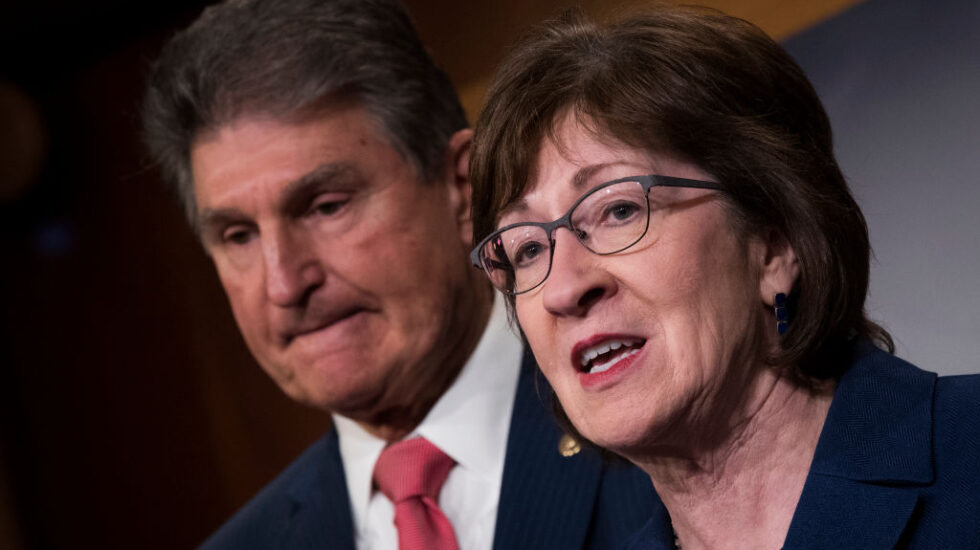A bipartisan group of Senators is working on drafting election reform legislation that can survive Congress’ tense partisan divide.
POLITICO reports that nine Republicans and seven Democrats are focused on the overall effort, with a particular emphasis on several key issues, including “the Electoral Count Act, protecting election workers and officials, voting practices and rights, the Election Assistance Commission, presidential transitions, and contingent elections.”
Democrats are represented by Senators Joe Manchin, Jeanne Shaheen, Kyrsten Sinema, Chris Coons, Mark Warner, Ben Cardin and Chris Murphy. GOP participants are Sens. Susan Collins, Mitt Romney, Thom Tillis, Roger Wicker, Rob Portman, Lisa Murkowski, Todd Young, Ben Sasse and Shelley Moore Capito.
Many of the participants played an important role in formulating the infrastructure bill, the biggest bipartisan achievement in years. The group has assigned its members specific areas of focus and plans on reconvening this weekend to discuss progress.
Collins and Manchin have been charged with examining the Electoral Count Act.
Former President Donald Trump lashed out at Collins over the weekend, saying her attempts to reform the Electoral Count Act prove that his vice president, Mike Pence, could have lawfully rejected the congressional certification of President Joe Biden’s victory.
“Mike Pence did have the right to change the outcome, and they now want to take that right away. Unfortunately, he didn’t exercise that power, he could have overturned the Election!” Trump said in a statement.
Collins, echoing the overwhelming sentiment of election law experts, rejected Trump’s characterization of the Electoral College Act, which was passed in 1887.
“To me, President Trump’s comments underscored the need for us to revise the Electoral Count Act because they demonstrated the confusion in the law and the fact that it is ambiguous,” Collins said.
The Hill explains:
As part of their discussions, senators are discussing making clear that the role of the vice president in the formal counting of the Electoral College results is ceremonial. They are also discussing raising the threshold for the number of lawmakers from both the House and Senate that need to back an objection to a state’s rules before they can force a vote on those objections.
Currently it takes the support of just one member of the House and one member of the Senate to force both chambers to vote on an objection to a state’s rules. Republicans were able to force votes on both Arizona and Pennsylvania on Jan. 6, 2021. Though the challenges both fell short, they were interrupted for hours after a mob of Trump’s supporters breached the building, forcing the House and Senate chambers to be evacuated.
POLITICO reports that the Biden White House is taking a wait-and-see approach to the bipartisan election reform efforts.
Earlier this month, Democrats failed to pass a robust voting rights bill after Republicans demonstrated steadfast opposition.



